Sweet. I have a devilish sweet tooth, and have since I was a child. I was the kind of kid who reached into the cookie jar when no one was looking. I still do so today, but as an adult, no one can really stop me! There are a great many things that would pose a threat to one as curious as I in H.P. Lovecraft’s mythos. The most likely bane for my existence would be Yog-Sothoth. I feel like my current quest for knowledge would eventually, and undoubtedly, lead me to this Outer God. A being locked outside the universe that knows all that occurs in space-time would likely overload my brain, causing me to bleed from all facial orifices while incoherently sputtering the deepest secrets of all life. That is, until I would shrivel up into a mumbling husk doomed to be cast out into an unfeeling, unthinking void, with nothing but my long sought secrets to keep me company. "The most likely bane for my existence would be Yog-Sothoth. Your original artistic pursuit was in film and TV but you opted to focus your creativity on writing. In what ways has your training in film influenced you as a writer? Do you write screenplays as well or are you committed to the text-only format of books? There are many ways to tell a story. Visually, auditorily, or in written form. Film and TV focus on the visual and audio aspects, but everything always starts from the written format (script). My education in broadcast television allowed me to learn about how to create content for an audience. My writing could be the best work to ever grace this planet, but if no one wants to read it... well, it doesn’t really matter then, does it? I learned how to create a story from people who have been doing so professionally for a long time. Working with professionals like this allowed me to develop an understanding of how to create the kind of story that people want to experience. "There are many ways to tell a story. Visually, auditorily, or in written form. Film and TV focus on the visual and audio aspects, but everything always starts from the written format (script)." I no longer write scripts/screenplays. I used to in college, and shortly following college, but I discovered more freedom in more traditional styles of writing. I found the formatting for scripts and screenplays (interior vs exterior, types of shots, location and character names, etc.) to be a drag. Having to expend effort for such things for stories that I don’t plan to shoot seems like a waste of effort. Effort that would be better spent fleshing out lore and building a literary world. You and I are both Canadian authors which, if you walk through the average Chapters bookstore (pre-quarantine, of course) is fairly rare. What unique challenges has being a Canadian author brought to you? Are there any advantages you’ve found to living north of the US/Canada border?
"Canadians tend to be less inclined to push their way to success, For a similar reason, I feel that Canadians have an advantage on our home turf. Mark, an author I worked with recently, told me of a time he was doing a book signing for his work at a bookstore in Waterloo (his home town). That day, there was a promotion going on for a recently released Stephen King book, but Mr. King was not there to do any reader-interaction stuff. That day, Mark’s new book outsold Stephen King’s. All because he was a local author who came out to see his readers, and King didn’t. No offense to Stephen King, I’ve heard he’s a cool dude, I’m just saying that taking advantage of your home town and local bookstores can be a great boon! Especially when we can all return to our beloved bookstores in the, hopefully, near future. One of the things that many newer writers really struggle to do is to finish things. Perhaps they write three quarters of a story then abandon it or even complete a first draft but never edit it. What advice do you have for writers who find themselves stuck within sight of the finish line? I think I’m kind of a freak in this regard. These days, I always finish every writing project that I start, but that was not always the case. I wrote the first half of Inner Expanses during 2014/2015, but stopped when... life... and death got in the way. There was one week in March of 2015 where I completely lost sight of my life and temporarily devolved into a wretch of a man. After a little while, I regained my humanity, but found that I was not able to pick up where I left off. I felt that if a life can end suddenly and without reason, then so can a book. I purposely left Inner Expanses unfinished as a testament to this notion. It wasn’t until 2018 that I picked up the pen once more, so to speak. "I think I’m kind of a freak in this regard. These days, I always finish every writing project that I start, The reason I reached for that pen once more, and why all writers should do so themselves regarding unfinished work, is quite simple, though hard to see until you have a paradigm shift. Because you can. And because you want to. When I think of potential… when I think of what could be, I cannot rest. Write because you want to, but remember that if your writing is never completed and no one reads it….it’s pointless and useless. This is harsh, but I feel these are words all writers need to hear. No, not hear, FEEL! No one cares about a half-written story. No one is going to write it for you. If you truly care about your story, finish it and share it, otherwise it won’t matter. You can write for yourself, if you want, but why deprive the world of your beautiful words? Your book Inner Expanses is a dimension twisting story about two planes of reality that swirl and collide, one that is full of battles with monsters and another that is familiar to our own world. I am always intrigued when Fantasy and Sci-Fi genre elements are mixed. How did you manage to balance these two threads? Were they blended into one in your mind or woven together?
"When you define the rationale behind concepts, they go from being 'unknown magic' For example; long ago, people thought natural disasters were the work of Gods or monsters, but today we know that they are the result of nature’s natural rhythm. Fictional concepts always come to my mind on their own, but always get swirled into the vortex that is my brain. There, they live with their neighbours of different origin and reason. Much like the beings of the realm of nightly battles, from Inner Expanses. As well as being an author, you are also an artist. In fact, you created the art for your book Inner Expanses which many writers, I’m sure, would love to have the skill to do. Do you often visualize your stories through art as part of your writing process or is your artwork reserved only for covers? Art has always been a huge influence in my life. Particularly visual arts, such as painting, sculpting, and even modern artforms like photography and videography. I use them as lenses to see certain things through. Things that I cannot experience personally, but things that I can appreciate the aesthetic value and meaning of. Horrific concepts not of this realm, long dead romances of tragic heroes, tales of fairies and wizards and dragons. "Art has always been a huge influence in my life. Particularly visual arts, such as painting, I don’t always incorporate art with my stories, but it is relatively common. The acts of creating, both in writing and visual art, are just two mediums in which to tell stories. There are much more, but these are just the two I use the most often...and probably the best, if I’m being honest. Creating the covers/accompanying art for my stories, including the silly little “figures” in my ongoing newsletter story, has given me a valid reason, or rather an excuse, to use a visual medium of storytelling in conjunction with the written. I live on Vancouver Island and absolutely love living by the sea. One of your upcoming works follows the adventures of Captain Charles Salt as he becomes a dreaded pirate. Can you give us any sneak previews or hints as to where his adventures might take him and his feisty crew? Firstly, let me state my envy. I’ve been to Vancouver Island and really enjoyed my time there! I wish I could live in a place like that someday. My dream home would be a lighthouse, I think. Ah, yes. Captain Charles Salt, along with his brothers and sisters, will be the protagonists in my next full length novel ‘Salt On the Waves’. So far, this tale exists solely as concepts and daydreams, albeit somewhat organized ones. I don’t even know if this story will be a single book, two, or even three. There’s certainly a lot of fuel for adventures that the Salt crew could have. I have been playing with ideas for Salt On the Waves for years now, many of which tie into the book that I’m going to be releasing this summer, ‘Unusual Tales for Curious Minds’. This is actually the first time I’m typing out the title, on my website it is still ‘Untitled’! I may change that soon, though.
Picture a world, similar to ours in cosmic geography and geology, but there are no great land masses. Just many islands. Some big, some small, but all very interesting and unique. Due to ancient and secret reasons, there is a great degree of variation between islands. The amount of different kinds of life in this world, known as Okeanós, is staggering. This includes, but is not restricted to, colossal sea monsters the size of islands, vicious pirates hungry for gold and blood, and many curiosities of prehistoric and sinister nature. "This includes, but is not restricted to, colossal sea monsters the size of islands, vicious pirates hungry for gold and blood, and many curiosities of prehistoric and sinister nature." Where can readers keep track of your latest writing and stay up to date on your next publication? My newsletter and my website are the best places to do that. I have added a ‘Latest Updates’ board on the homepage of my website to let everyone, myself included, know of recent changes and developments. I also mention the same things on the board in my newsletter, in addition to giving my subscribers short stories, art, and poems. All of which are EXCLUSIVE to the newsletter. Twitter is also a great place to keep track of my work and get in touch with me. I’ve made plenty of friends in the writing community there. I tweet daily and am always looking to connect with new readers and writers! Make sure to follow Reyadh on Twitter and join his newsletter. Book lovers can also find him on Goodreads!
2 Comments
And amplify a sense by a factor of ten...hmmmm. I would say sight because my vision suuucks, so amplifying it by a factor of ten would probably just about give me normal vision, yay! In all seriousness, yes, I’d say sight. I feel like all the other senses being amplified would be really rough in different ways. I love both Sci-Fi and Fantasy in all their forms. However, I sometimes wonder why they are grouped together as, for me, they seem distinct in many ways. As a writer of sci-fi and fantasy yourself, how do you distinguish the two genres? Can there be any crossover? Should they be considered separately or are they just two ends of the same spectrum? That’s a really great point, and it’s a pretty big part of my concentration. For my major, I chose to study The Concept of Otherness in Speculative Fiction, and one of the things I talked about a lot with my adviser was the use of the term “speculative fiction” instead of “science fiction” or “fantasy.” For me, speculative fiction means anything that lets the writer make observations about the human condition, society, technology, or really anything, without setting the story in our own world. I would say that sci-fi and fantasy have always been grouped together because they take issues that exist in the here and now and comment on them through creating these other worlds, whether those worlds involve magic and whimsy or tech and innovation. For that reason, I see them as two ends of the same spectrum working towards a similar goal. And as for whether there can be any crossover, my WIP merges magic and technology because I love both genres so much. Whether that crossover is effective is up for debate, but I enjoy it and always look out for it to read! "I chose to study The Concept of Otherness in Speculative Fiction, and one of the things I talked about a lot with my adviser was the use of the term 'speculative fiction' instead of 'science fiction' or 'fantasy.' " You host the online journal Satyr Central which posts “anything soulful and non-conformist”; I personally find this focus so refreshing as almost every publication I have encountered is looking for something so specific that it seems that all but a dozen people on earth are disqualified from submitting. What have been some of the highlights of hosting Satyr Central? Thank you so much! That means a lot to me. And shoutout to one of our editors, “Jon the Semite” for coming up with that little blurb on our About page. I think the biggest highlight of hosting Satyr Central is knowing that I can post some really weird stuff and not worry about “Oh, does this meet guidelines? Oh, is this too weird to publish?” I’ve accepted some great submissions where the authors told me when they submitted that they weren’t sure what category the piece fit into, so they thought it would work well with us, and it did! From theological rants to odes to headless women to articles rating books by how nice they feel and sound, we’ve got some bizarre stuff on Satyr, and I say that with a lot of pride. "From theological rants to odes to headless women to articles rating books by how nice they feel and sound, we’ve got some bizarre stuff on Satyr, and I say that with a lot of pride." Most writers spend a fair amount of time sending queries and submissions. You have experience on both sides of that conversation. As someone who receives and reviews submissions, what are some tips you have for writers who are trying to get their work published?
Other than that, the biggest tip I can give writers looking to submit anything--whether it’s queries for a book, article, short story, poem, whatever--is that it’s a good idea to (politely) follow up if we take too long to look at your submission and get back to you. I love getting submissions, but with everything going on, it’s very easy to get overwhelmed and I always appreciate someone giving me a gentle nudge and saying, “Hey, I sent you this a few weeks ago and just wanted to confirm that you got it.” Now note that some publications/publishers/lit agents don’t like it when you do that and will say that they’ll get to you when they get to you or to take no response as a rejection, and that’s where reading guidelines carefully comes back into play. But for me personally, I appreciate those quick nudges and it’s helped me get back to awesome writers whose submissions I somehow managed to entirely miss. So there’s that! "...the biggest tip I can give writers looking to submit anything... is that it’s a good idea to (politely) follow up if we take too long to look at your submission and get back to you." Sci-Fi and Fantasy as genres offer writers almost unlimited freedom in creating worlds and characters. As always, in the words of Uncle Ben, ‘with great power comes great responsibility’. What are your thoughts on the power of that freedom and what do you think should guide writers in their use of that power? Are there any limits? And where have you seen this power wielded masterfully for the greater good?
"I do think the best stories—Sci-Fi and Fantasy in particular—have the power to You and I share an interest in myths and mythology. One of the joys of engaging with the writing community online is the opportunity to learn about myths from all over the world. Which is your personal favorite flavor of mythology and are there any mythological personalities that you think deserve more air time? Wow, this is a great question (and a tough one!). I grew up on Greek mythology and have always loved it, but in terms of mythological personalities that don’t get enough air time, I’d have to say the legends from The Ramayana. I got to be a student mentor teaching a high school class this Hindu epic, and it was such a joy to explore all of the themes, characters, and political and religious context for the story of Rama, Sita, and Lakshmana. Yet I had never, ever heard of the epic before being invited to take part in that program. I think that’s a real shame and I highly recommend that any lovers of mythology check it out. "I grew up on Greek mythology and have always loved it, but in terms of mythological personalities that don’t get enough air time, I’d have to say the legends from The Ramayana." Can you give us a hint about your current project? Any tantalizing clues or sneak-peek quotes? I’m planning on finishing my first short story from my work-in-progress, which will hopefully be the start of some sort of web series I can post on my website. I want to hold myself accountable because I’m a chronic procrastinator, so I’d love to include the first paragraph from the short story! “It had been two years since the first time Kamiel had been to the Hex Market on the border between his home district and the worst, most loathsome district in The Core City. Since then, he’d gotten accustomed to the hushed conversations, the shifty-eyed patrons, the bubbling of Imaginate elixirs used for something far different and more sinister than their intended purpose, and even the occasional Rending when tensions were high and fights would break out...” Fingers crossed I can actually finish it, ha! “It had been two years since the first time Kamiel had been to the Hex Market on the border between his home district and the worst, most loathsome district in The Core City..." Where can readers keep track of your latest writings and stay up to date on your next publication? I am all over social media, but the best way to keep up with my writing is to subscribe to my blog’s newsletter! I promise we don’t send hundreds of emails a day, but you will get an update when we have a newsletter out or a brand new post weekly.
"When I’m feeling fancy: prosciutto and fresh arugula. When I’m feeling basic: pepperoni." As a writer of thriller and fantasy, you know how to get the reader’s adrenaline pumping. What common pitfalls have you encountered, either through your own development or through reading others’ work, when writers try to amp up the tension but end up falling flat? Several things can make the tension fizzle. The first that comes to mind is info-dumping or excessive flashbacks / background in the midst of the action. If you want to maintain the tension throughout a scene, you have to stay as much as possible in the present moment. I’m currently reading Crescent City by Sarah J. Maas and am thoroughly enjoying it, but I nearly put it down in the first five chapters because it felt like every other moment in the scene was interrupted by detailed backstory. It’s something I have had to work on with my writing as well. Ninth House by Leigh Bardugo is a good example of how to keep the tension going, with backstory woven in more subtly. "Several things can make the tension fizzle. The first that comes to mind is info-dumping or There are many new avenues open for authors to share and publish their work online but being an author today also comes with a whole new set of challenges. What strategies helped you find success as you built your audience online and off? As a first step, you have to identify what your goals are: do you have a published (or soon-to-be published) book that you’re ready to start marketing? Or are you more interested in building community at the moment? I, personally, am currently focused on community-building. I do my best to align my social media engagement with what feels good and authentic to me - my personal goal is to organically connect to readers and fellow writers. This means I gravitate toward the platforms I enjoy using, regardless of whether or not they have a good reputation for producing sales or click-throughs. Facebook, for example, is generally considered helpful, especially for indie writers, if you can learn how to leverage its targeted advertising system. But I do not enjoy Facebook. At all. So I prioritize my time on Instagram and Twitter, which perhaps aren’t as good at generating click-throughs, but are wonderful sources of inspiration and connection with fellow writers and readers. "I do my best to align my social media engagement with what feels good and authentic to me -
"Second, as clichéd as this may sound, you have to show up as you. What you see on my social media feed And last but not least, focus on building a positive and welcoming space on your social media feeds. We’re all inundated with negative news on a daily basis (now more than ever), so I try to provide as much entertainment and escapism as possible. To that end, the best decision I've made was to launch a newsletter. It has helped me connect more deeply to the wonderful people I've met online, and it allows me to give back to the community - every month, I run a book giveaway exclusively for subscribers, because I love sharing the books that I’ve enjoyed (recent giveaways included Ninth House by Leigh Bardugo, Neverwhere by Neil Gaiman, Sinner by Sierra Simone). I also share things that I love talking about with friends: trailers for upcoming movies or TV shows (especially thrillers and mysteries), books coming up soon that I’m excited about, and interesting articles about real-life stories that are stranger than fiction and could be great inspiration for thrillers. The key is that I love doing all of this - and because I’m talking about things of general interest, other people seem to be finding enjoyment or a bit of distraction from the newsletter as well. It may take some experimentation, but take the time to find the things you enjoy and focus on them. That way, it won’t feel like work. A while ago, I drafted a blog post answering this question with some more detail, in case it's helpful. Writing can be a lonely endeavor and it helps to have a community of writers around you for encouragement, critique, and, let’s be honest, to just blow off steam sometimes. You have established a healthy community of writers around you through your website and through Twitter events that you host. What advice do you have for writers who feel alone and are trying to connect with other writers? If you’re new to the twitter writing community, probably the best way to get started if you don’t know anyone is to follow some of the big writing hashtags. My favorites are #writingcommunity, #vss365, #indieapril, and #writerslift. The “vss365” tag stands for “very short stories, 365 days of the year,” and is a fantastic community of writers who craft single-story tweets based on a prompt word that the host of the month shares every day. I would start by supporting other writers on the vss365 tag - read their stories, like their tweets, and comment with words of encouragement. If you’re feeling brave, contribute your own stories! "I would start by supporting other writers on the vss365 tag - read their stories, like their tweets, and comment with words of encouragement. If you’re feeling brave, contribute your own stories!"
If you are an introvert, or have social anxiety or otherwise feel uncomfortable being very open and communicative on social media, I completely understand that “Have fun!” isn’t going to be doable for everyone. Please don’t feel like you have to push yourself to be someone or do something that goes beyond your comfort zone. If you feel comfortable with a more limited form of engagement, you could start simply by reading through the above hashtags and getting familiar with the writing community online. And if you do a search of “how to build an author platform if you're an introvert,” quite a few resources pop up - rest assured that you’re not alone! "If you are an introvert, or have social anxiety or otherwise feel uncomfortable being very open and communicative on social media, I completely understand that “Have fun!” isn’t going to be doable for everyone." Your short story The Calving takes an honest look at environmental issues through the story of a young couple facing an uncertain future. New writers often make the mistake of letting the message overshadow the narrative in a way that makes the story feel expository or preachy. How do you manage to write about issues that really matter while also keeping the narrative vibrant and engaging?
"In fiction, our job is to take the larger world and whatever big-picture issues The dry story about the big-picture issue is: dozens of reporters are killed in war zones each year as they try to expose human rights abuses. The personal story is Marie Colvin’s own life, which reads very much like a thriller - so much so, that a Vanity Fair article about her was adapted into a movie a couple of years ago. Whatever subject matter you want to tackle, no matter how broad or epic it might be, put yourself in your characters’ shoes and make it as personal to them as you possibly can. The Apartment, a short film which you wrote the screenplay for, is now in post-production. What was the experience of writing for film like and what advice do you have for brand new screenplay writers who are trying to break in? It was a surreal experience to write words on a page and then see people bring those characters to life (I also directed the short, which my best friend and immensely talented filmmaker, Matthew Newton, produced). It was also rather frustrating. With fiction, you can write whatever you want - there are no budgets and production practicalities to hamper your vision. With a screenplay, by contrast, you start with your dream vision (locations, scenes, the “look” of it all) … and then slowly whittle down that vision to a budget, production schedule, locations, and cast and crew hours you can actually afford. It is simultaneously a humbling and thrilling ride. "With fiction, you can write whatever you want - there are no budgets and production practicalities to hamper your vision. With a screenplay, by contrast, you start with your dream vision ... and then slowly whittle down ..." I’m not trying to get an agent or sell a feature screenplay at the moment, so I can’t quite speak from experience about the industry, but I can give the following tips:
"The Scriptnotes podcast, hosted by Craig Mazin and John August, is a fantastic resource. I have learned more about the screenwriting craft and the industry from them than from any book or website." 2) Read as many screenplays as you can! Some of my personal favorites are Sicario (fantastic action sequences), Michael Clayton (brilliant dialogue and character development), and Traffic (great structure). Incidentally, all three scripts are examples of movies that take a big-picture political or social issue and make it intensely personal. There are so many other stellar scripts you can learn from. You can start with a search of the “top ten most important screenplays for a writer to read.” Or you can let your curiosity be your guide and start with the scripts of the movies you love. Either way, read with a critical eye and pay attention to plot structure, rhythm, dialogue, and all of the other craft elements you should examine when you’re reading to learn. What is the next big project you have on the go? Can you give us any sneak peeks or hints around what it will be about?
"I’m really excited to indie-publish my first supernatural mystery novella! Mile Marker Eight combines the small-town weirdness of The X Files with the dark comedy of Fargo." I’m also currently revising the first draft of an adult supernatural thriller that melds three of my favorite things: super-strength, telekinesis, and mixed martial arts cage fighting (MMA is my favorite sport). It’s heart-pumping action, ticking-time-bomb danger, and a heavy dose of steamy romance. I hope to be ready to start querying agents in the fall. Until then, I’m sharing little details through my newsletter but otherwise playing this one close to the vest. Where can readers find more of your work and stay up to date on your latest publications? I’m at @rrvaleauthor on Twitter, where I host writing sprints and write vss365 stories, and on Instagram, where I share writing motivation and tips, book reviews, and moody shots that inspire some of my writing. And you can sign up for the monthly Thrills & Magic Newsletter for exclusive updates, giveaways, and behind-the-scenes sneak peeks. Sign up for R.R. Vale's newsletter and follow her on Twitter to stay up to date!
Any writer who actually finishes a piece of work, whether it's a short story or a novel, will at some point get ‘stuck’. What do you do when you get to that sticky point and what strategies do you have for working past it? As I have always done with life in general, when I am stuck I walk away. It’s a learned behaviour, but it does come in handy when writing. I plan a lot in my head, so when I do sit down to write and become stuck, I walk away from the computer or the notebook for a while. This way I can (usually) clear my head and refocus. The downfall of this is that sometimes I stay away for extended periods of time and I don’t revisit the piece I was working on and then it is left incomplete. I could publish a book entitled: The Complete Incomplete works of Joanna McQueen. I am working on this. No it’s not procrastination! Well maybe it is a form of it... "I walk away from the computer or the notebook for a while. This way I can (usually) clear my head and refocus." You are querying agents and publishers for your first book, a children’s story written in a lyrical style. From your experiences so far, do you have any tips to share with other children’s authors who are just beginning to wade into the waters of querying? Keep writing! Keep trying! Never give up! This is my daily mantra. It has taken a very long time for me to see myself as a writer/poet. The internal voices telling me I wasn’t good enough spoke very loudly and persistently, so I believed them. Unfortunately, some of these voices came from real people and not just self-deprecation. I am learning not to listen to them. So my best advice is don’t believe the voices (or the people/letters) that tell your work is not good enough, or right, or it’s not the right time, or you should just give up. Don’t believe them. They are lies/liars! "The internal voices telling me I wasn’t good enough spoke very loudly and persistently, so I believed them. [...]
In your story, a young boy who has been grounded finds himself transported to a magical library. What role do you see libraries playing in this internet age as so much media gets transferred away from traditional paper onto digital platforms?
Stories can be so powerful in communicating ideas. It is especially challenging, I would imagine, in a children’s book where your word count is limited. How did you manage to take the whole narrative and boil it down to the words that ended up in the story? Another good question. I believe I have been creating this story and ones like it, in my head, for a long time and one day I just wrote this particular one. The magic of this story flowed through me. It just worked. I can’t explain it. With that being said, I am a mother and a teacher and I love stories, especially whimsical rhythmic ones. I have read a lot of children’s books so I have been able to explore them quite extensively. I especially enjoy Dr Seuss and have several of his books memorised. He is an inspiration and I suppose I followed his narrative, unknowingly. Understanding the narrative and structure of children’s books is important and writing to fit the specifications can be challenging but sometimes, just sometimes, a story works all on its own. "The magic of this story flowed through me. It just worked. I can’t explain it." Many authors day-dream about having an artist illustrate their work. What tips do you have for finding and working with an artist if an author chooses to go that route? I’m not sure if I am the right person to give advice on this as I am so new and the experience of working with an illustrator is as well. The illustrator I approached is the daughter of a long-time friend and I just love her. I asked her to illustrate my story not only because of the association, but because I see her as a talented artist that should be recognised for who she is. Knowing her as well as I do, I knew that she would be able to create with her hands, the images I created with my mind. Thankfully, she said yes and is delighted to work with me and I am so very pleased. "Knowing her as well as I do, I knew that she would be able to create with her hands, I suppose any advice would entail choosing an illustrator that will compliment your work, if this is an option of course. I reviewed a children’s book yesterday and the only negative thing I would say about it was that the illustrations didn’t fit the story. It was a lovely story but the illustrations did not do it justice. So now, I believe that illustrations complimenting your story are quite important. Hence why I chose who I did. Where can readers find more of your work and stay up to date on your latest publications? Because I am so brand new, I am still organising the platforms to promote myself as a writer. I have an Instagram account where I talk about books: adult, young adult and of course children’s. My pages are the title of my book: The Library of Imagination. My email is the same. I have very recently started a Facebook page also of the same name. I will create a website in time. It’s on my ‘to do’ list. I can be contacted on any of these platforms and would be happy to engage with people. Find out more about Joanna's book The Library of Imagination on Instagram.
Rarely, if I really need to get fired up for something or I’m struggling to get something done late at night, I’ll put on some rock or metal. The Who’s Live at Leeds album is a real good one to light a fire under your ass. Favorite villain is definitely Roy Batty, because you understand the motivations behind his brutal actions, and even come to sympathize with him quite a bit. Yet he’s still scary as hell. Honorable mention goes to the Serpent Society from Marvel comics, just for being a bunch of awesome weirdos in snake costumes. I would rewrite the end of the Avengers to include the Serpent Society. "Favorite villain is definitely Roy Batty, because you understand the motivations behind his brutal actions, Many newer authors are intimidated by the idea of sharing their work. What gave you the confidence to put your creative projects out into the world and what advice do you have for those who might be nervous about sharing their art?
A little while back you were part of a project to turn one of your stories into a short film. What were some of the joys and challenges of adapting your story as described in prose to the big screen? I discovered that I love screenplay format. That mode of storytelling really worked for me, just in terms of the way you have to describe things in a visual way, and you have to be concise and clear. I also got to travel to England for more than a week! "I discovered that I love screenplay format. That mode of storytelling really worked for me,
Writing screenplays is a fairly competitive market, but sometimes the right tool can give a writer the edge on their competition. What platform would you suggest for writers who are interested in adapting their novel for film? The industry standard is a program called Final Draft. I’ve never used it, it’s damn expensive. That said, screenplays have very specific formatting demands, so you need something. I discovered that Scrivener, a piece of software originally designed for organizing and writing novels, has a screenplay mode with a bunch of shortcuts that make screenplay formatting incredibly easy. And it’s got a very reasonable price. No one has ever looked at one of my Scrivener screenplays and said, “Why wasn’t this done in Final Draft?” I don’t think anyone would know the difference. "I discovered that Scrivener, a piece of software originally designed for organizing and writing novels, You are also a part of a band called Spacelord with several albums available on Bandcamp. Do you see writing music and writing SFF as separate creative endeavours or is there cross-over influence in your work? They’re separate in the sense that there are very different sets of skills involved and totally separate paths to (and measurements of) success. But they’re very connected in that the things I’m interested in and influenced by affect both of them very deeply. My songwriting is heavily influenced by Tolkien and Robert E. Howard and Blade Runner, and my fiction is influenced by Dio and Led Zeppelin and The Sword. And of course every independent creative person is trying to build an audience for their work, and I think there’s a connection there as well. Someone who likes Spacelord is likely to be into my fiction too. "My songwriting is heavily influenced by Tolkien and Robert E. Howard and Blade Runner, You wrote an article for Gizmodo back in 2013 titled “What's the connection between heavy metal music, horror and fantasy?” One of my current ‘most listened to’ bands is Brothers of Metal who pull heavily on the Norse myths for lyrical content. Why do you think metal bands are drawn to mythological themes?
"Who better to explore epic mythology than bands whose singers sound like demons or gods, with drums like marching armies and guitars that evoke the mightiest heroes battling nameless beasts from the Underworld?" You’ve got quite a range of experience when it comes to music and writing. What has been the focus for you recently and what can readers look forward to as your next big project? On the fiction side, there’s a novel in progress, and some short stories. I seem to bounce back and forth between horror and epic fantasy. On the music side, Spacelord was literally days from starting the recording of our third album when the world ground to a halt. So right now we’re working on an acoustic EP of all new songs, with our guitarist and I sending sound files back and forth so we can get it done without ever actually being in the same place. We’re moving fast on that and I hope to release it by the end of April. "On the fiction side, there’s a novel in progress, and some short stories. Where can readers find more of your work and stay up to date on your latest publications? Well, I’m pretty terrible at updating my website, so people should probably just follow me on Twitter. You heard the man! Follow him on Twitter.
Any great villain is relatable. The ones you feel for and almost root for because you can empathize with what they went through. When I see villains who are just dicks and "born this way", I can't get into you. Show me a Venom or a Punisher bad guy and I'm all in. Someone who has lost everything and I'm behind them 100%. John Kramer killed for a reason, and even then, had people kill themselves. John Doe from Seven. "Any great villain is relatable. The ones you feel for and almost root for Online presence is a big deal, especially for newer writers who are trying to build an audience. As your website is exceptionally professional, do you have any advice for newer writers who are weighing their options for an author website? Definitely. Use Leia. It's an app that will build the website for you, based off your preferences. It takes zero skill to learn. The team has been super professional in assisting me where I need. There is a free version I recommend starting off with. From there, you can go pro with the click of a button. My site averages 1,000 hits a month (or more) and I didn't have to learn anything. Though I am not a regular reader of horror, some of my closest author friends write in this genre. What drew you into the genre and what would you say to a potential reader who is hesitant about exploring horror-themed works? As a teen I gravitated from fantasy to horror through an author named John Saul. Saul's books were more "Teens discover secret society" and "people with dark powers". I burned through them in a day. Despite his huge library of work, I needed more. I moved on to Dean Koontz and Stephen King. Horror isn't always about gore in books. If the synopsis sounds good, look at reviews. They should give some insight if you're avoiding the genre due to graphic violence. "Saul's books were more "Teens discover secret society" and "people with dark powers". I burned through them in a day."
Strange Tales from the City of Dust, your serial sci-fi series, is a set of stories about a futuristic version of Pittsburgh which has now become the City of Dust. What inspired this dystopian cyberpunk world and what types of themes do you enjoy exploring through your stories? The main things I was shooting for here was having a Bladerunner universe with a Sin City-type of spit storylines. As any writer knows, we get so many ideas that it's hard to keep up with all of our works-in-progress. Doing things as serial stories means any time I think of something new, I can find an episode to incorporate it. No waiting. No getting stressed at too many back burner unfinished stories. "Doing things as serial stories means any time I think of something new, I can find an episode to incorporate it.
You have decided to create a set of serial novellas which all take place in the world of Strange Tales from the City of Dust instead of writing novel-length books. Was that an intentional choice or did the stories themselves inform that choice? What have been some of the advantages and/or challenges of marketing serial novellas as opposed to more traditional full-length novels? I've written a ton of normal books of varying lengths. I get so distracted. New ideas, so I abandon works in progress. Not anymore. Every new idea is blended into stories I'm working on. It might be an infection I was studying. It might be an event that takes place. It'll all be within the City of Dust. "I get so distracted. New ideas, so I abandon works in progress. As I read through the descriptions for Clockwork Deus, The Darkest Part, and Pinned Butterflies, I could not help but think of my favorite Netflix series: Black Mirror. Do you think that your novellas could play out well on screen? Also, what are your thoughts on Black Mirror as a series in terms of its contributions to the public conversation about modern Sci-Fi? I love Black Mirror. Been eating it up as soon as it launched and trying to find everything I can that released soon after and attempted to ride the waves it casted behind it. I always write things in a visual format so that it can be easily transferred to screen. I usually have specific actors/actresses in mind when designing characters. I look at the episodes like a comic book purchase. People enjoy comics for a fun, quick read. My episodes are always a buck each and have a 1-2 hour enjoyable read. Each episode delves into something real-world, while also forcibly taking something currently that I don't care for and making it fixed and adamant. My books won't ever make sexual preference or sexual identity an issue. This isn't to skirt the issue. It's because, as I see it, it's all considered normal in my universe. No one will give you a side-eye if you were born a girl but identify as a guy. No one cares what's between your legs. "Each episode delves into something real-world, while also forcibly taking something currently
Last, but not least, where can readers track down your books and stay up to date on your latest publications? Amazon. For the moment, I am exclusively Kindle Unlimited. Strange Tales From The City Of Dust Episode 4: Neon Pentagrams is being worked on now! Find more from Vaz on his website!
"My favorite magical creature is Al mi’raj from Arabic poetry. It is also known as the Wolpertinger in German mythology, the Jackalope in American myth and the Lepus Cornutus from medieval and early Renaissance times." I like stories when seemingly weak or underdog characters win in unexpected ways. I’m not particularly religious, but even as a kid I liked the David and Goliath story. Speaking of Goliath- the mythology there is of the Nephilim- the giants who were apparently offspring of demons and humans. That’s interesting. It was when I was a little kid and to me, it probably always will be. I’m a lover of myths that attempt to explain life to believers. There’s a creature from the Ewe tribe of Togo and Ghana called the Adze. The Adze are shape shifting vampires and evolved as a way to warn against the deadly effects of mosquitos and malaria in the region. "If I had to be best friends with a villian, I would choose the Fratelli family from Goonies." If I had to be best friends with a villian, I would choose the Fratelli family from Goonies. They were such a bumbling group of silly meanies. I write Middle Grade and Picture Books, so it follows that I would like this group of greedy criminals from a smash hit kids movie. I especially loved Sloth Fratelli but he was a good guy, wasn’t he? I drink an unnatural amount of coffee while I write. I recently upgraded to a Keurig after a decade of using the same drip coffee maker. Now, I can have a hot cup - fresh every time I need a bathroom break. It’s kinda funny- I was gifted a box of mixed flavor coffee from my wonderful husband and now I rotate through cinnamon, vermont maple, hazelnut, southern pecan and blueberry vanilla and I love it. "I drink an unnatural amount of coffee while I write." I often offer to read rough manuscripts for fantasy fiction and one piece of feedback I often give (and sometimes get!) is that the narrative doesn’t feel ‘real’. How do you manage to connect with your characters and express their thoughts and emotions to readers in an authentic way? Well, thank you for this question because it implies that I know how to make a character come to life and feel ‘real,’ jumping off the page. I am not sure I always do this. There are times that I’ve reread my work and felt the feelings that the characters are reported to be feeling. I’ve cultivated those moments by writing about something that I have a personal, visceral connection to. Feelings are triggered by sensory experiences and if you can tap into the sensory experiences of your reader and make them feel the feelings that the characters are feeling from the lens of their own visceral life experiences...it becomes real for them. They feel like they “know,” the character. Using the five senses can get you where you need to be quickly. Also using observations about human nature and human behavior can create a connection and give insights into how a character might be feeling. The reader might find themselves thinking “I do that too.” Many authors branch out from writing to provide other services related to the process of making books as editors, graphic designers, and online forum hosts; I call these ‘writing adjacent’ skills. In addition to your writing, you also design incredible author logos to help writers present their brand effectively. What advice do you have for writers who are thinking of exploring the option of offering services using their ‘writing adjacent’ skills? I think that writing adjacent services help you to build an author platform. If you are launching a writing career out of obscurity - offering a service can help others get to know who you are and where you sit within the writing community. You can cultivate friendships, readership and writing adjacent customers in this way. When it comes time to enter into the querying trenches, having a following of some kind is important. How important? The blog subscribers, twitter followers or insta numbers as a platform are a mystery to most of us, but a general, strong effort to get your name out there is valuable and it shows. It shows you have staying power and that you are willing to work for your place in the industry.
There is an origin story for the bunny in The First Easter Rabbit narrated by Burl Ives from 1976 but I wanted to give my story a classic feel and tie it to another famous rabbit story. I find retellings satisfying because the reader gets to re enter a world they’ve loved before and learn a little bit more about the beloved characters. They get to relive the joy. My version of The Velveteen Rabbit, The Girl Behind the Magic sticks to Margery Williams’ original and has enough of her story for modern children to receive the wisdom that Williams intended about ‘realness,’ coming from the pure source of love. However adding a few more layers of contrast helps this story come to life in a fresh new way. Also there is a little girl in this story and I think adding little girls to stories that once had boys as the only protagonist is a fresh take too. "However adding a few more layers of contrast helps this story come to life in a fresh new way. Also there is a little girl in this story and I think adding little girls to stories that once had boys as the only protagonist is a fresh take too. " You are also a writer of short stories and in your lyrical piece The Hope Goblin, a young girl named Isabelle learns to confront a wicked, bullying goblin. The themes of building one’s own self-confidence and self-image are apparent throughout the rollicking tale. On that topic, how do you feel about instructive literature vs. escape fiction? Where is the line for you as a writer between stories that teach and stories that entertain? I love escapism as a reader. As a writer, I must be true to my roots, and instructive literature comes out in me in earnest. I was an English teacher overseas in the Peace Corps, Uzbekistan and then also independently in China. I taught 8th grade writing in Texas as well as ESL to adults and kids. If teaching is breaking something down to its simplest components to be able to build- students in tow, a thing to its theoretical completion- this is how I approach most things in life. I am a parent and I utilize those skills. I love to cook and paint abstract pieces and I do graphic design. I use the skill of looking at the building blocks and ingredients to get to a desired result in those areas too. I think this is why I like writing for kids. Simplifying may seem just that...simple...but it’s a lifetime thus far of developing the skill of breaking things down in order to teach it... I think I bring this skill to the table as a writer too. "Simplifying may seem just that...simple...but it’s a lifetime thus far of developing the You have an impressive compendium of mythological creatures on your website, including the little known fairy pig from the Isle of Man known as the Arkan Sonney. What draws you to these creatures and in what ways have other writers responded to your work on that collection?
"We all have similar fears and insecurities too and you find them personified in many of the creatures of myth." Authors from other countries have contacted me and asked when I am going to do an article on a creature from their culture. I am slowly working through an alphabetical list and so many have said they will be patient until I get to theirs! Others have reached out and thanked me for expanding past what they can find on Wikipedia. I try to cross reference and give examples from several sites so that I am not just replicating what is already easily accessible on the internet. What also seems to be helpful is talking about where the mythological creature has shown up in American pop culture. I find that advertising and product naming ventures pull from International myth and folklore a lot. "I try to cross reference and give examples from several sites so that I am What can you tell us about your most recent project? Do you have a few smaller stories on the go or are you working on something big? I am currently seeking representation for a #STEM, PB series and am very excited about the process. I have a MG Contemporary Adventure based on Aztec Mythology that I am trying to find a home for as well and am also continually working on short stories and creature articles for my blog. Last, but not least, where can readers find more of your work and stay up to date on your latest publications? Find A.R. Jung's adaption of Margery Williams’ The Velveteen Rabbit on Amazon: The Girl Behind the Magic.
I set up a certain time frame, in which I’d like to be done writing. After creating a detailed outline I can break it down easier. It helps me figure out how much I need to write each week to reach my goal! "For a writing retreat, I’d love to go to The Black Forest." I often hear writers complain that they don’t want to waste their time on social media. Personally, I have sparked many meaningful connections within the writing community online and have received much in the way of encouragement from this network of fellow writers. As you have found success in attracting a large audience online, what justification would you present to writers who are skeptical about the usefulness of social media? I think anyone that has the opportunity to converse with, or learn from, other writers and authors, as well as spread the word about their work, should take that chance. You never know when that big break will come! Before I wrote The Gatewatch, most of my writing took the form of song lyrics which I sang and performed with a Celtic folk music group. You have a musical background as a vocalist in the hard rock genre. How do your experiences in music shape your stories and what do you think other writers could learn from musicians? I’ve been a musician for over 10 years now. People often feel moved by music, whether it’s the lyrics or the sound. I think metaphors are a big reason for that. Novels can have that same effect. "People often feel moved by music, whether it’s the lyrics or the sound. My stories are primarily inspired by the Norse Myths and I often find myself going back to source material to pick up small details about minor characters that I missed before. Most memorable for me are some of the characters that never get mentioned in popular culture, unlike the well-known actors like Thor, Odin, and Freya. I think a similar phenomenon happens in representations of Greek Mythology as characters like Zeus, Hermes, and Aphrodite overshadow most others. As your work is inspired in part by Greek Mythology, who do you think of as a figure in the Greek myths that deserves a moment in the spotlight? I think that all deities deserve the spotlight, honestly. There are those shrouded in mystery, and chaos, and so many of them are highly misunderstood. Oh and Hera! Definitely Hera. Looks around the room, nervously, with a forced smile. "There are those shrouded in mystery, and chaos, and so many of them are highly misunderstood.
The fantasy realm of Gnariam that you have created is both deep and wide. I sense a lot of anxiety from new fantasy writers about creating the world in which their stories take place. While I think we can both agree that there is no end to the work a writer could do in crafting their world, where do you think a new writer of fantasy should begin in their world-building process? I absolutely love the world of Gnariam so far. It’s going to continue to grow. I think the best tip I could give is to think of as many things in this world, and write them down. For example: governments, religions, currencies, land masses, creatures, if there is magic or tech, terrains, climate, clothing, technology level, etc. Creating a world that feels tangible is a key to success. "Creating a world that feels tangible is a key to success." Where can readers find more of your work and stay up to date on your latest publications? Discover the realm of Gnariam through C.S. Ratliff's novel The Lightning Rod on Amazon.
Welcome Joan! Thanks for taking some time to chat about writing. First, a few quick-fire questions: How do you take your tea or coffee? Do you prefer rain or snow? And if you could have any mythical creature as a pet which one would it be? Thank you so much for inviting me to chat! My go-to is English or Irish black tea with lots of milk and sugar. I prefer snow, but like both. And I would love to befriend a griffon—or any flying creature. "I would love to befriend a griffon—or any flying creature." Paint us a quick picture of what a productive day of writing, research, or illustration looks like for you. Do you have a certain schedule that keeps you on track or is your creative output more spontaneous? Is there a specific location you like to work in or do you go from place to place? Do you work in small chunks or do you plow through large sections all at once? On a productive day, I will have two sessions of creative work: one session first thing in the morning, and the other in the hours before I go to bed. I try to methodically complete tasks one after the other, so this usually means spending both sessions working at the same task, whether that is writing and editing text for a book, carving a wooden plate for a print, or inking a hand-drawn illustration. "I try to methodically complete tasks one after the other, so this usually means spending both sessions That said, I do sometimes have spontaneous bouts of work in the middle of the day, if I am struck by big-picture idea for a new project, or for the development of a current project; I’ll then stop whatever I’m doing and try to capture the idea before it’s gone. I rely on this kind of spontaneous inspiration in order to form the vision for my projects, but I rely on habit to bring the projects to completion. That habitual work almost always takes place at home—I like to have all my art materials nearby—and in small daily increments. I have always had a great deal of respect for storytellers who also possess the skill to illustrate that which they see in their imagination. The first illustrator/writer that comes to my mind is Howard Tayler who co-hosts one of my favorite podcasts, Writing Excuses. How do your illustrations affect your storytelling process? Are they typically created after the written narrative or do your visuals inspire the text?
In an online interview with the Nanovic Institute for European Studies you describe a research trip you took to Europe ahead of your senior project. There you delved into the history of printmaking. Of course, the emergence of the printing press gave rise to a chorus of new political, social, and religious voices. Do you think the internet as a means of digital publication has had a similar impact on society or do you view this medium as distinctly different from the printed word? Yes, I definitely think there is a similar impact! As you say, there are a host of new voices entering into the public sphere, and the shifts towards social disruption and globalization amplified by the printing press also seem to be happening today with the internet. You can even trace similar reactions from the public to this disruption. Multiple people in early modern Europe interpreted the sudden explosion of printed material as a sign of the imminent apocalypse, and you can read similarly dire interpretations of the internet’s effects today: that it’s the end of democracy, of human intimacy, etc. I personally believe that human culture will adapt to the change and continue to grow, just as it did with the printing press. "Multiple people in early modern Europe interpreted the sudden explosion of printed material as a sign of the imminent apocalypse, and you can read similarly dire interpretations of the internet’s effects today..." In one aspect, though, I think the internet is having an effect opposite to that of the printing press, in that it is bringing images to the forefront. In medieval Europe, at least, images seemed to hold a great deal of power as vehicles for complex ideas and cultural values, and the introduction of the printing press seemed to gradually demote images to mere decoration, especially when they were combined with text as illustrations. I think the internet is restoring some prominence to the powerful combination of word and image—whether that is through the social communication of Instagram, video essays on YouTube, or the visual humor of memes. "I think the internet is restoring some prominence to the powerful combination of word and image—whether that is through the social communication of Instagram, video essays on YouTube, or the visual humor of memes." The Book of the Enchanter is your riveting retelling of the rise and fall of King Arthur as told through the fictional character Bleise who records the tale at Merlin’s request. Complete with wood-block carved illustrations and printed in a style true to the early days of the printing press, it transports the reader to an age long past while remaining accessible to the modern reader. How did you manage to interweave your academic research and creative expression throughout this project as these two are often seen as quite distinct?
I find Arthurian literature especially inspiring in this regard, because of the way that different texts build on each other and innovate over time. For most of the history of the Arthurian legend, audiences responded to Arthurian literature by creating new Arthurian literature of their own; when I see this conversation playing out in the texts that I study, I naturally want to participate in it myself! I’m glad to hear that the book is accessible, because I think that is my biggest challenge when combining research and expression: I wanted to create a version of the Arthurian legend that could speak to people of my own time, just as the Arthurian authors I study were speaking to their cultural context. As a writer who is inspired by the Norse Myths I often scratch my head at all the time I spend re-reading these stories from over one thousand years ago. However, I am continually drawn back to them and revel in re-interpreting the vivid characters and dramatic imagery. What is it about Arthurian legend that drove you to undertake such an immersive project as The Book of the Enchanter?
Maybe not all of us participate in a story as dramatic as that of Lancelot, but I think most people have experienced relationships with that same tangle of love and conflict. I appreciate Arthurian legends both for the veracity of the emotions that they portray, and the larger-than-life backdrop against which these emotions play out, which to me speaks to the intensity of emotional experience. Your illustrations in The Book of the Enchanter are done in the style of historical prints from the dawn of the age of print. From an artist’s perspective, what is the value in imitating forms such as wood-block carving in modern work? Is it simply an artistic exercise or is there something to learn from the themes and styles of cultures from the past?
For example, studying highly structured medieval books like the Paupers’ Bible inspired me to incorporate a high degree of symmetry into my illustrations, even though I was also using more contemporary techniques, like the progressive visual narratives found in picture books. I believe that consciously responding to the art of the past in a new form allows me to create something special, a work that is more unique than what I would make if I never learned from artists outside my own period. Where can readers find more of your work and stay up to date on your latest publications? Recent updates can be found on my Instagram and more information about me and my work can be found on my website. Thank you for the great conversation! Read more about Joan Becker's thesis project, The Book of Enchantments, on the University of Notre Dame website!
In the past few years you have published several books, been an active contributor in academic circles, and engaged a large audience through social media. Do you set a strict schedule to maintain this level of productivity or do you find other ways to sustain your work? I have a bullet journal. It is not very decorative, but it is great for making checklists, and I like checking things off (yeah, I’m an overachiever). I read a certain amount of stories each day with my breakfast, and most of my blogging and social media posts are scheduled for specific days. It also helps that I do a lot of the storytelling research purely for fun. Sometimes I just feel like looking up folktales about a topic, or from a place, and I enjoy going down the research rabbit hole. It’s one of the things I do for fun. "I have a bullet journal. It is not very decorative, but it is great for making checklists, and I like checking things off..." Your work on folktales from around the world spans both continents and centuries. Is this work driven primarily by personal passion or do you hope that your translations become contributions to the ever evolving conversation on globalization? It is mostly personal passion. I love learning about cultures through their stories. I started the “Following folktales around the world” reading challenge a few years ago, and I still have about 40 countries left to read folktale collections from! As for contributions: With my books I hope to bring Hungarian folktales to English-speaking audiences and storytellers, because they are not very well represented on the English language folktale market. On the flip side, I translate a lot of tales into Hungarian so that Hungarian audiences can have access to them as well. "With my books I hope to bring Hungarian folktales to English-speaking audiences and storytellers, One of your first books was Tales of Superhuman Powers: 55 Traditional Stories from Around the World. Today more than ever, North Americans are flocking to the theater to watch movies about superheroes and traditional story-telling media, such as comic books and graphic novels, are becoming popular again. Given your work in this field, what do you think draws people to stories about superheroes? Is it human nature? Is it a part of our mythos or culture? Is there perhaps something psychological at work?
"My personal favorite thing about these “superhero” tales is teamwork. Earlier this year you released a book titled Forum-Based Role Playing Games as Digital Storytelling in which you describe an emergent form of digital storytelling facilitated through online platforms. Through this experience you discovered “a subculture of unbound creativity” as people wrote novel length descriptions of fictional characters and experience that they lived through these digital worlds. As a professional story-teller yourself, what drew you to engage with and study these emerging communities?
And the stories that come out of it stay online, and you can go back and read them for fun, or out of nostalgia. There are sites where I have been active for 8-10 years, and the stories still keep surprising and entertaining me. I love creating them in cooperation with others, rather than just writing things alone. In your 2018 publication Dancing on Blades: Rare and Exquisite Folktales from the Carpathian Mountains, you translate the tales of Anna Pályuk, a Rusyn woman who married into a Hungarian family. I find myself challenged by the task of ‘crossing cultures’ as I work with Icelandic source material from a different culture and time. How did you preserve the essence of Anna Pályuk’s stories while translating them for a modern reader? Were there any guidelines or strategies that helped to guide your process?
Joseph Campbell believed that common connections existed between stories from many parts of the world and summarized some of the key aspects of those similarities in what he called the Heroic Journey. Do folktales from around the world share much in your experience or have you found them to be highly distinctive to the culture they were first told in? I have a bone to pick with the Hero’s Journey. For one, it only fits a sub-category of folktales, usually known as wonder tales or fairy tales. The more one digs into different kinds of traditional stories, the less the theory holds up. Plus, as a storyteller, I tend to focus on how the story is embellished, rather than the basic plot. A lot of tales can be boiled down to “someone gets into trouble, then gets out of it”, but let’s be honest, that is not what makes one tale more compelling than another. There are tale types that exist all around the world, but I only ever really liked one or two variant of them and the rest just didn’t click, because of small details. "The more one digs into different kinds of traditional stories, the less the theory holds up. Where can readers find more of your work and stay up to date on your latest publications? I regularly blog through my website and I have a professional Facebook page. You can also follow me on Twitter.
|
AuthorJoshua Gillingham is an author, editor, and game designer from Vancouver Island, Canada. Archives
April 2022
Categories
All
|

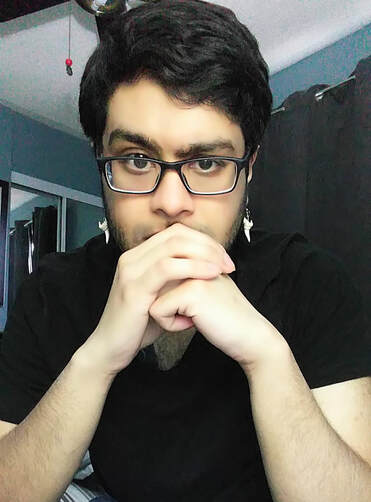

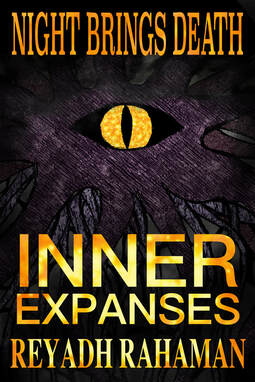




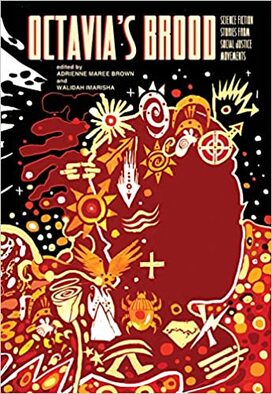
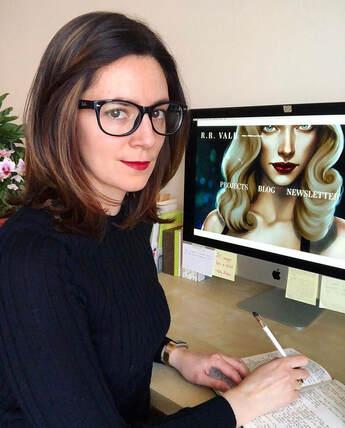


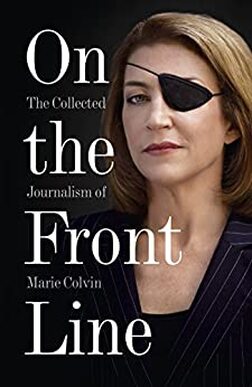
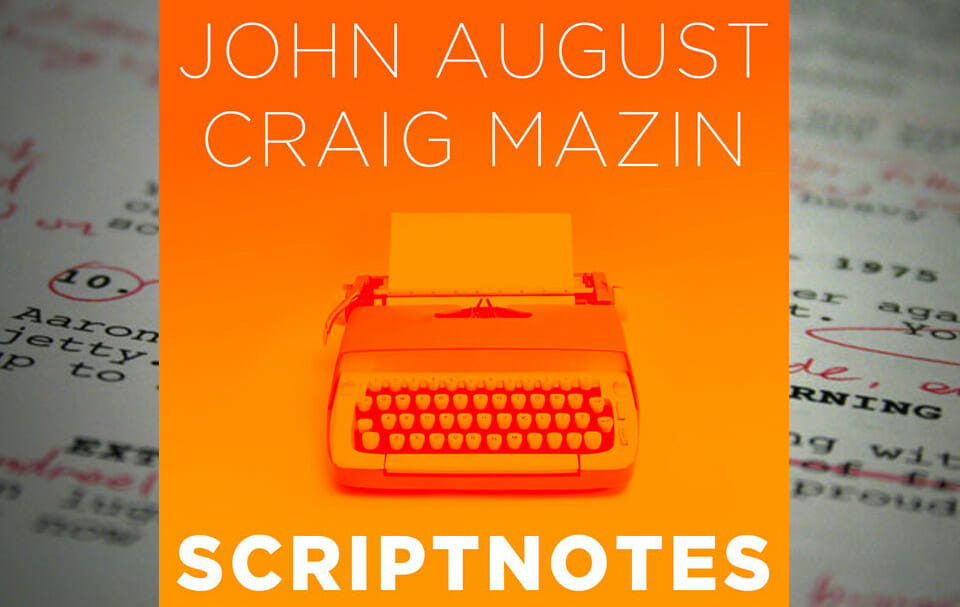
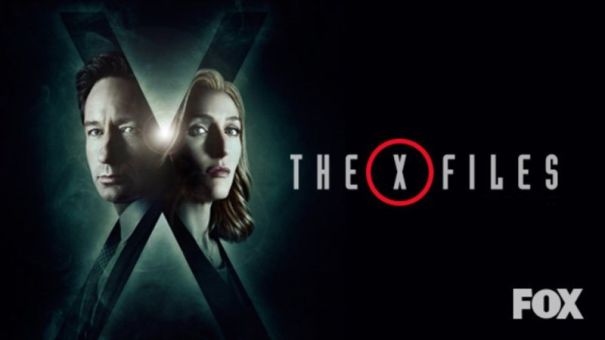

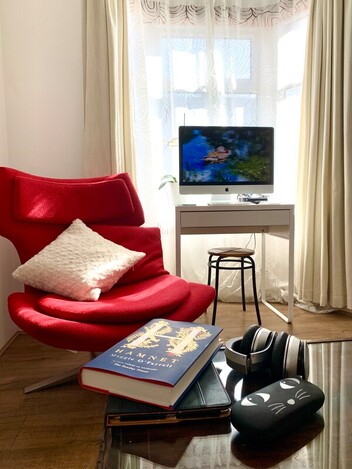

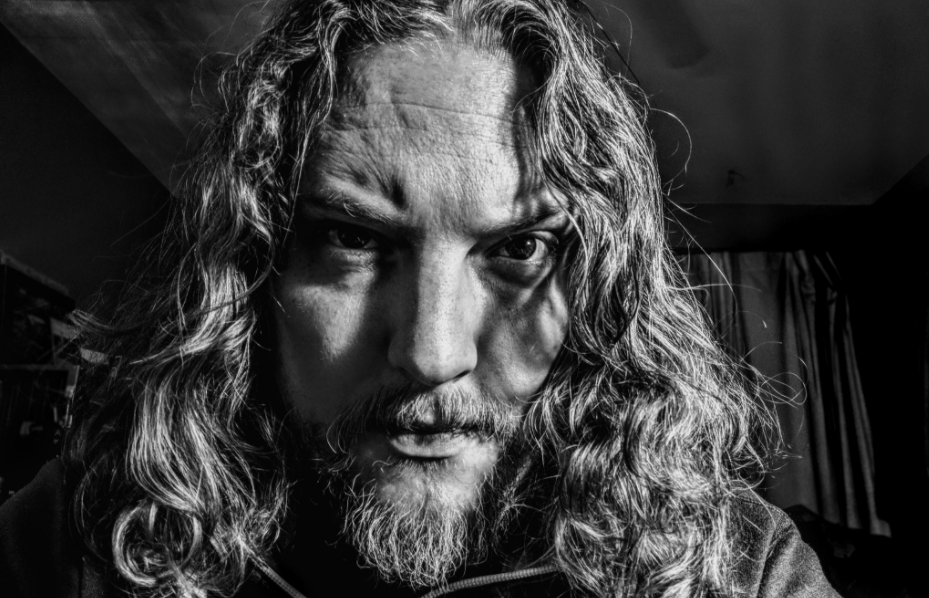

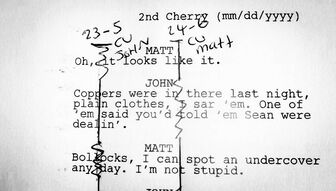
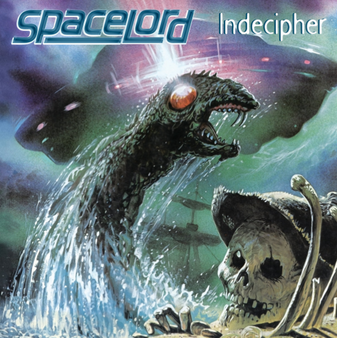
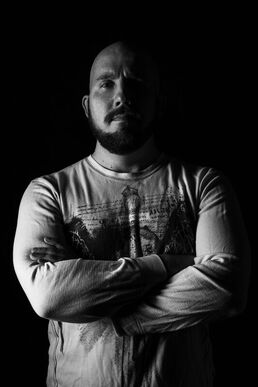
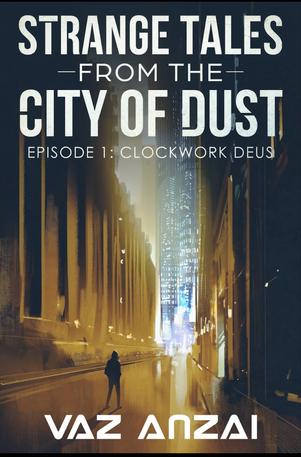
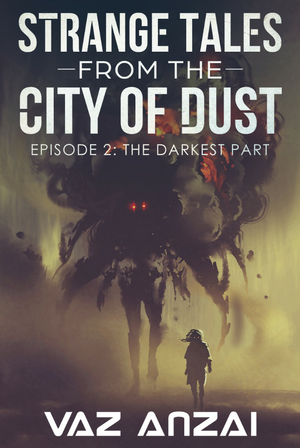
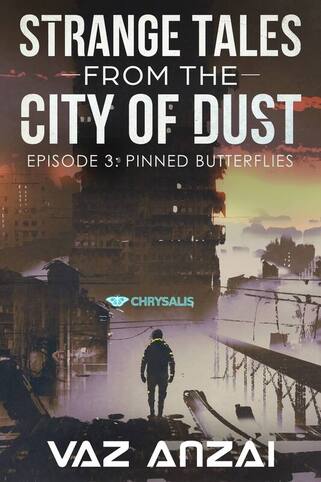

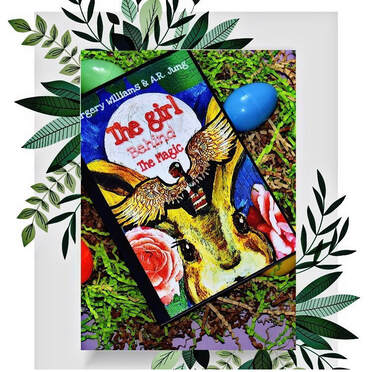
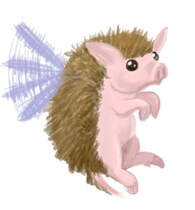
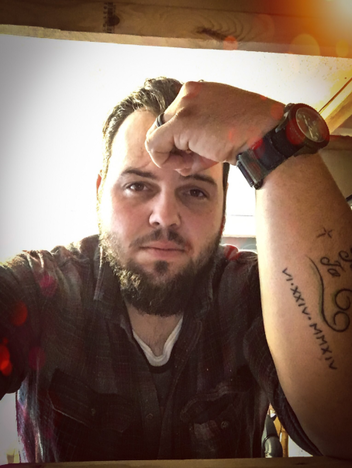
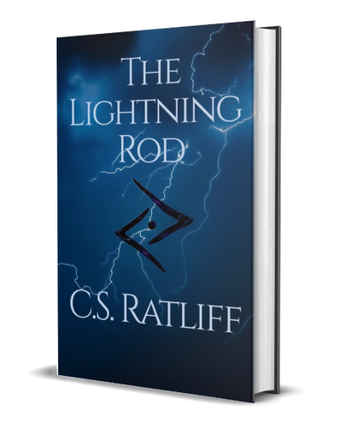
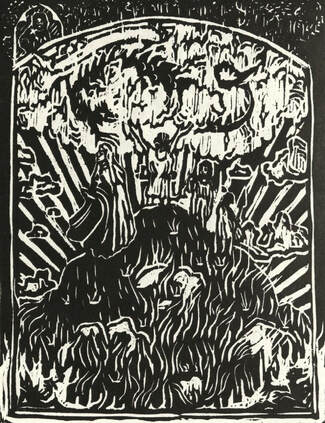
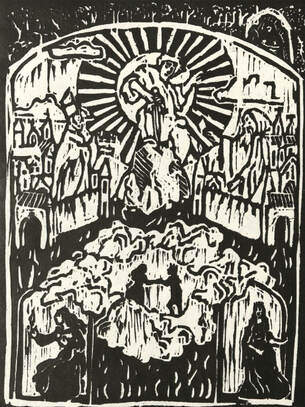
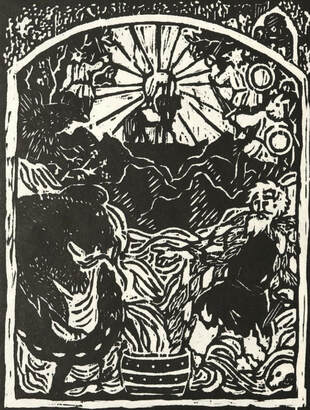
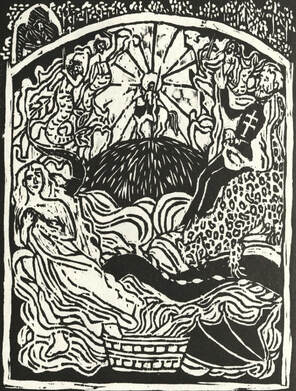
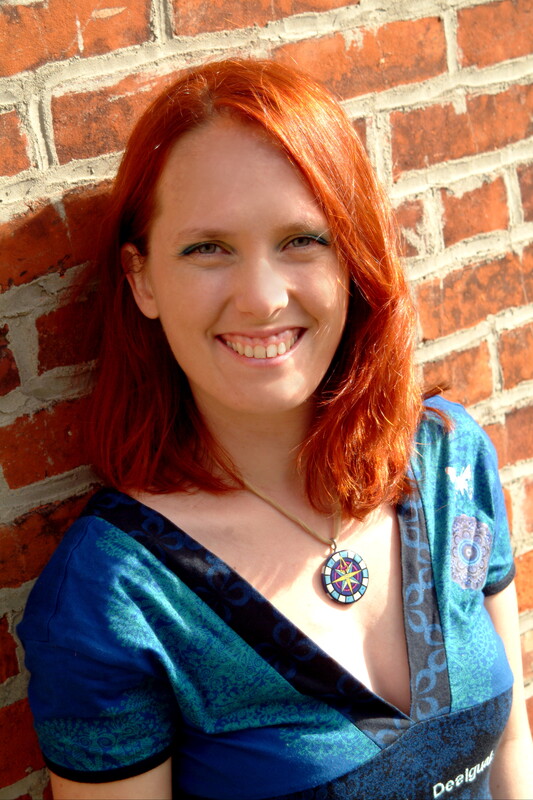
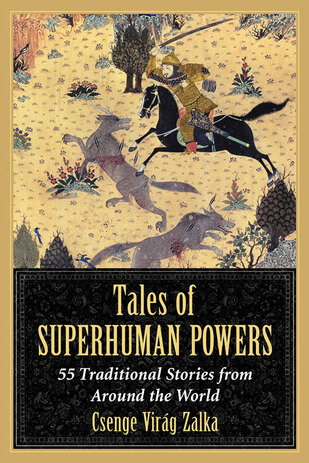
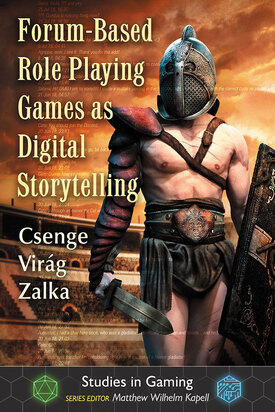
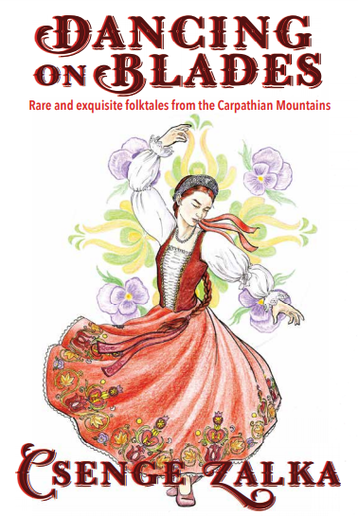
 RSS Feed
RSS Feed
